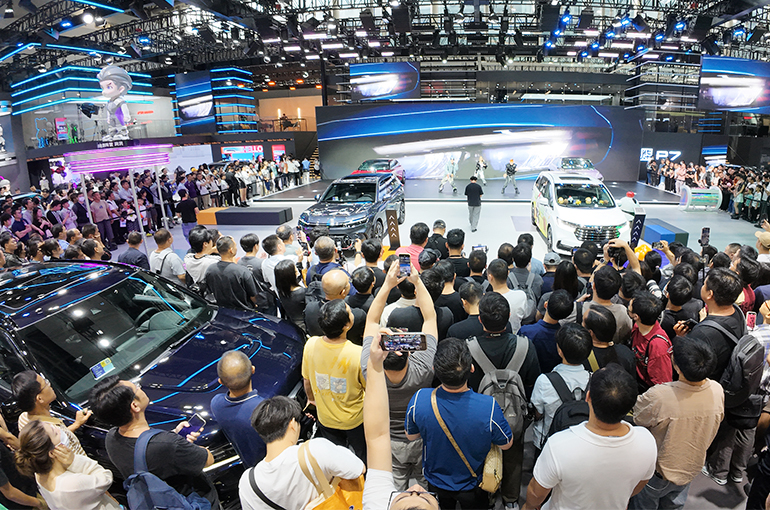 Auto Guangzhou 2024 Trends: Hybrids, Cheap Smart Cars
Auto Guangzhou 2024 Trends: Hybrids, Cheap Smart Cars(Yicai) Nov. 18 -- Hybrid cars and budget-friendly smart vehicles are among the standout trends at this year’s Guangzhou International Automobile Exhibition, also known as Auto Guangzhou, which underscores China’s rapid adoption of electric vehicles.
The exhibition is setting the stage for hybrid newcomers, with GAC Aion, Zeekr, and IM Motors unveiling plans to launch hybrid models as soon as next year. Avatr and Xpeng introduced their first range-extension technologies, while Li Auto, a pioneer among China’s EV startups with hybrid models, showcased its latest range extender.
Industry insiders told Yicai that hybrid vehicles offer the best of both worlds, benefiting from policies that favor EVs while retaining the functions of traditional fuel vehicles. As a result, the dual-mode option is expected to coexist with fuel vehicles for the foreseeable future.
This year’s Auto Guangzhou features a record number of exhibitors, with over 1,170 vehicles on display. Nearly 44 percent of these are new energy vehicles, marking the highest share since 2021, according to official data.
Another key highlight is the growing prevalence of smart driving technologies, now available at around CNY150,000 (USD20,715). For example, Xpeng’s electric sedan, the P7+, makes it the first domestic car startup to launch a smart vehicle in the CNY100,000 to CNY150,000 range. Also within this price category is GAC Toyota’s Bozhi 3X, a pure-electric SUV with L2++ autonomous capabilities, promoted as "the most cost-effective at CNY150,000." GAC Aion also offers a similarly priced option: the A0-class pure electric Aion UT, featuring the latest intelligent driving technologies.
Domestic brands are starting to outpace their foreign partners in terms of a technological edge. For instance, SAIC Audi, a JV between state-owned SAIC Motor and Volkswagen’s premium Audi brand, announced plans to integrate SAIC’s Advanced Digitized Platform with the new Audi logo. Meanwhile, Dongfeng Nissan revealed a strategic partnership with Huawei Technologies to adopt its HarmonyOS cockpit. The JV’s new all-electric sedan, the Nissan N7, will also feature a Chinese-developed service-oriented architecture for smart control.
Early EV Adopters
So far this year, China’s new energy vehicle sales have surpassed 10 million, with projections to reach 12 million by year-end, according to a recent estimate by the China Association of Automobile Manufacturers.
This momentum is likely to influence global markets. China is expected to play a pivotal role in the global mass adoption of EVs, which could take anywhere from five to 20 years, based on an Accenture report released today.
The report also revealed that Chinese consumers are highly receptive to EVs, with four out of five surveyed drivers expecting to own an EV in the next decade. In contrast, markets like Germany and France show more skepticism regarding a future dominated by electric vehicles.
Despite their openness to EVs, Chinese consumers remain demanding, prioritizing traditional factors such as value for money, safety, and reliability when purchasing an EV, the report concluded.
Editor: Emmi Laine